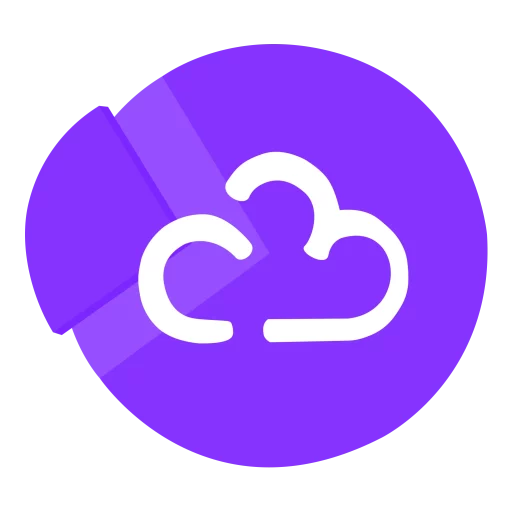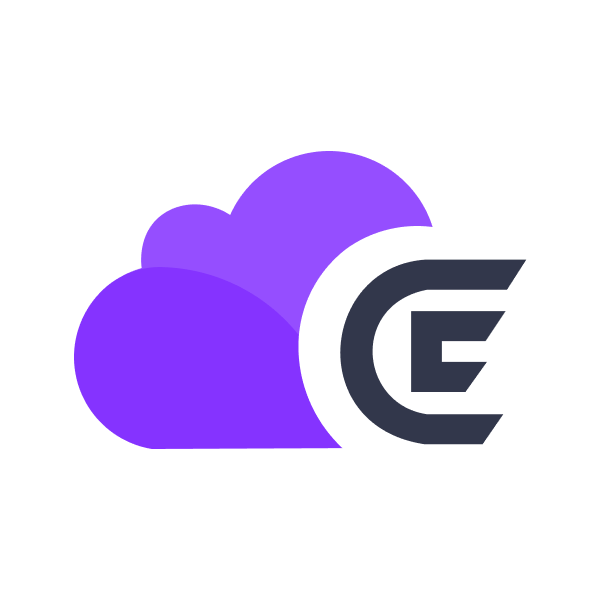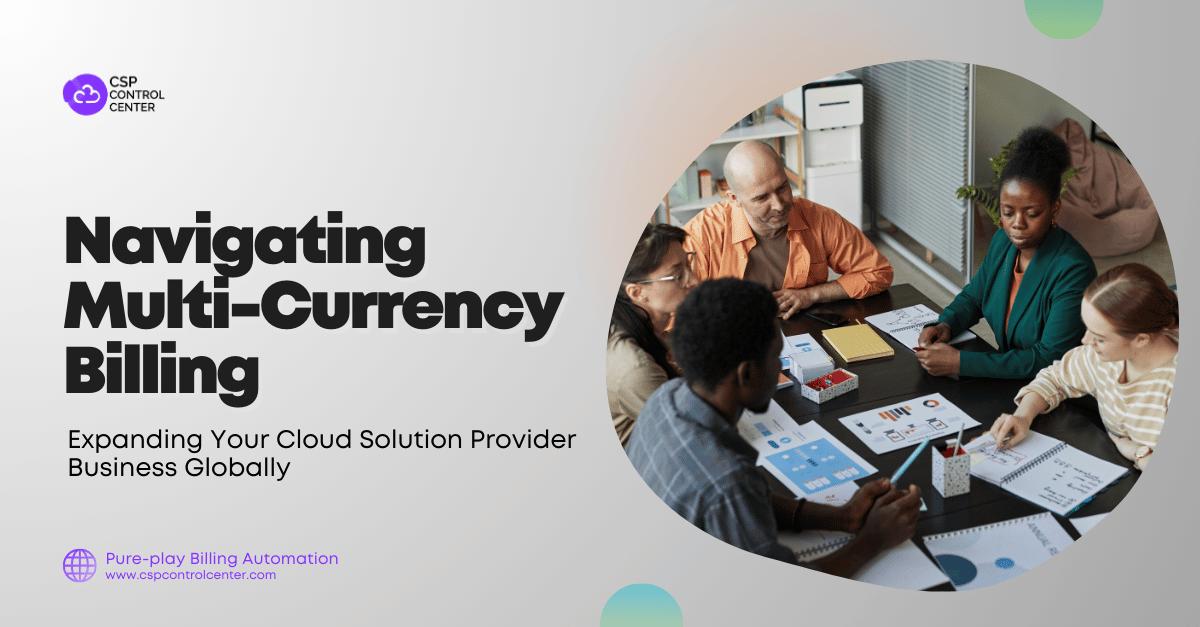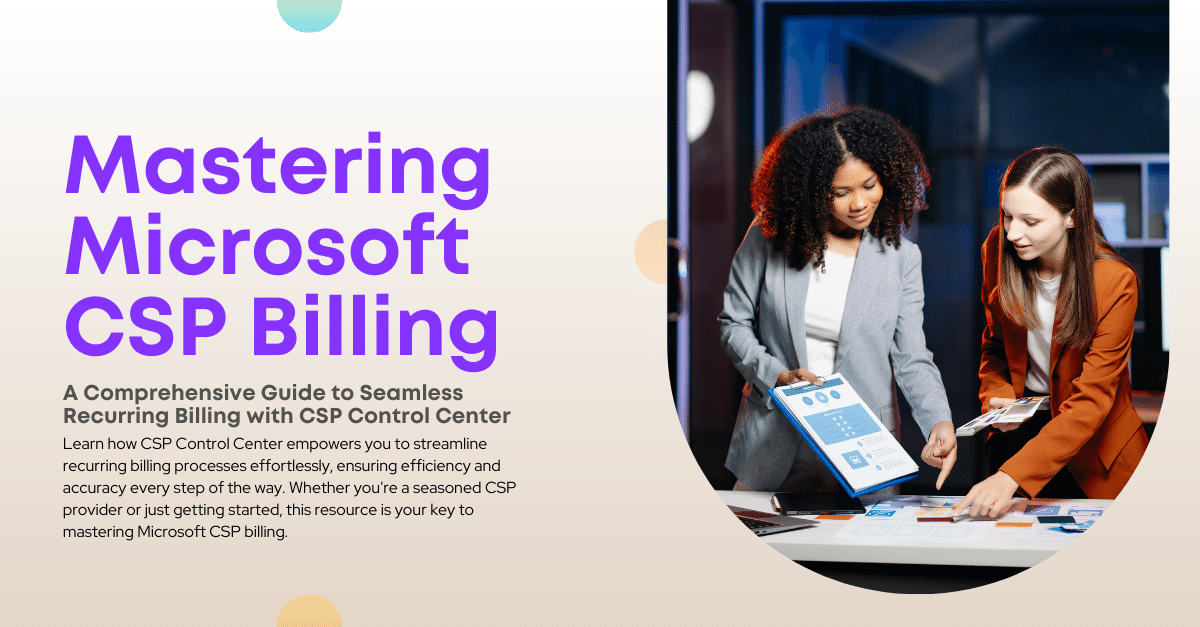As a Microsoft Cloud Solution Provider (CSP), you need to convince your potential customers why your platform is ideal for them to get licenses for Microsoft products as well as third party solutions. While having best-in-class experience and the ideal solutions is important, it needs to be complemented with effective sales conversations to ensure that the buyer completely understands the impact you can create for them. That’s where preparing your team, investing in learning, and training for the right sales conversations comes in.
In our journey of enabling CSP over the years, we have been able to identify some key tips and tricks that can help you ensure that the limited time you have for customer conversations, you are able to utilize it in the most effective manner. Through the course of this resource, we will cover:
- Various stages when you can have sales conversations in the customer lifecycle.
- Common pitfalls you should avoid
- Best practices to ensure your sales conversations can yield business impact.
- How partnering with an automation and enablement platform can help the process.
Stages to facilitate sales conversations
Customer engagement throughout the buyers’ journey is critical for making a successful sale. These communications, when done at the right time, can influence the purchase decisions of the prospective customers. There are different milestones in this journey that can present an opportunity for the sales team to interact with the customers. It is important to ensure that the sales conversations are based in context and are specific to the stage in which the customer is. Here is a quick snapshot of the key stages for sales conversations:
Initial discovery
In the first initial discovery phase, the customer is trying to understand the context of your solution, i.e., what CSP business entails and how it can help them. On the other side, your focus should be on understanding the needs of the customer. Your sales conversations should be in the same direction to understand the cloud buyer intent, discuss key challenges and share some insights from the industry based on prior research.
Understanding the scope
Once you understand the customer well, your next set of sales conversations should focus on understanding the scope of their needs and how your solution as a CSP can fit it. Here, you need to start with understanding what they need from a solution perspective based on the challenges identified. Do they only want to buy Microsoft solutions or do they want third party services as well. Similarly, you need to understand whether they want solutions independent of one another or as a composite offer. Thus, your sales conversations should focus on understanding their intent in terms of the number of licenses they need, their budget for the same, and even guiding them on how to get these data points in place.
Exploring meaningful synergies
Now that you know exactly what the customer wants, your sales conversations as a Microsoft Cloud Solution Provider should focus on providing an array of solutions that you can offer. Share with them a catalog of options and potential merits and impact of each. In this stage of the sales conversations, your focus should be on educating the customer as much as possible, without being too overbearing.
Facilitating decision making
Once you have shared potential options with them, navigate your sales conversation in a direction that can guide their decision making. Highlighting examples of industry application of the solutions or success stories with your current customers and the impact you have been able to create for them is important. Your objective as a Microsoft Cloud Solution Provider here is to help them make the right decision.
Following up
Finally, sales conversations do not end once the customer is in the system and has made the first purchase. Keep the conversations going as a Microsoft Cloud Solution Provider and share the latest developments or features that you may have added. There is always a possibility of upselling which your sales conversations can facilitate.
Common pitfalls to avoid during sales conversations
Now that you know the various stages in which you can facilitate sales conversations, it’s time to quickly glance through the common pitfalls you need to avoid. Most of them that are widely observed with Microsoft Cloud Solution Provider are unconscious. However, you need to make conscious efforts to avoid them to ensure your customer doesn’t end up with your competitors in the market.
Talking too little or too much
When you talk more during sales conversations, you miss the opportunity of hearing the needs of your customers and building a rapport with them. You will be unable to understand what they need and, hence, will not be able to make a customized pitch that catches attention. Additionally, your prospective customers might feel ignored and unheard leading to them losing trust in your ability to address their needs.
On the other hand, if you talk too little, you let the customer control the conversation. Also, talking too little might give the impression that either you are uninterested or are unable to understand the business needs of the prospect.
Using technical jargon or filler words
Bombarding the potential customers with too much product information at once makes them lose interest. Customers are more interested in how their problems will be solved rather than hearing technical jargon. Your sales conversations should focus more on specific features that can help address customers’ queries.
Furthermore, avoid using filler words too much. Overuse of filler words during sales conversations as a Microsoft Cloud Solution Provider can make you sound unconvincing, distract your audience and waste valuable time that could be spent mentioning the advantages of choosing to do business with you over others.
Being unprepared
Not investing enough time and energy in preparing for sales conversations can leave a bad impression on the customer. Without having any substantial information about the customer, their industry, and business needs, you will be unable to pitch the solutions best suited and your CSP sales pitch will seem generic. The customer might feel that they are just wasting their time listening to you and would leave little chance of getting a follow-up meeting.
Interrogating the buyer
It is good to ask questions to understand the mindset of the potential customer. It can help you uncover business needs and potential pain points the customer might be facing. However, customers should not feel that they are being grilled with rapid-fire questions. You need to make it a dialogue and not a monologue where you just answer. Add your insights and points along during the sales conversations as well.
Being overeager
Being overeager shows the customer that you are ready to close a sale at any cost. Once the customers sense your desperation during the sales conversations as a Microsoft Cloud Solution Provider, they ask for better deals and more discounts. On the other hand, some prospective customers might view you as underconfident and might refrain from doing business with you.
Arguing with the prospects
Sometimes even after your best efforts, a potential customer might fail to see the benefits being offered. There could be instances where the customer might raise unreasonable objections leading to arguments. Customers can have differing opinions about your product or service, but you do not have to argue just to drive your point. Rather, be open to their views and listen actively.
Top 7 tips for effective sales conversations as a Microsoft Cloud Solution Provider
Let’s uncover the top 7 strategies you can use as a part of your sales conversations as a Microsoft Cloud Solution Provider to facilitate effective conversions.
Prepare for the conversation
It is integral to be prepared for the conversation and have a fair idea of what you will be saying for each sales conversation you will have. Effective preparation for sales conversations includes:
- Knowing about your customers, their needs, business background, etc.
- Understanding the unique challenges and pain points the customer might be facing.
- Familiarity with the industry of the customer and how a CSP platform has helped similar businesses in the past.
- Evidence based case studies and industry-specific best practices.
- Deep knowledge of your offerings and which feature/solutions will attract customers the most.
Be likable
When potential customers like you there is a higher probability of them buying from you. For successful sales, you need to sell yourself before your solution. Here are some quick tips to add impact to your sales conversations by becoming likable:
- Build a rapport with the customers by engaging in conversations that may be of interest to them.
- Do not jump directly to selling. Try to collaborate with the customer to find solutions together.
- Build a relationship with the customers by showing genuine concern about the business and listening empathetically to the concerns and offering helpful solutions.
Personalize interactions
We live in the world of hyper personalization and if your sales conversations are generic, you will find it difficult to capture customer interest. Here are a few quick ways to personalize your sales conversations as a Microsoft Cloud Solution Provider:
- Use a tone that best matches the customer’s personality and business language, for instance, if you are dealing with a deep tech organization, use terms around technological drivers.
- Use the name of the person/ organization to make the sales conversations personalized and attention grabbing.
- Maintain notes and CRM for each sales conversation to pick up from where you last left and ensure a continuity.
Build trust
Trust and comfort are very important for driving successful sales conversations. Only when a customer trusts you will you be able to convert the prospect. To build trust, you need to:
- Establish credibility by leveraging data to show the results your product has achieved cand position yourself as an industry expert.
- Be honest about what your offerings can genuinely help them achieve. Don’t make promises or commitments you may not be able to deliver on.
- Show transparency in terms of pricing and subscription management by leveraging features like self-service, where they can manage their cloud subscription and billing.
Illustrate impact
The next tip for successful sales conversations as a Microsoft Cloud Solution Provider is to illustrate the impact you will be able to deliver. Instead of relying upon the conventional pitch of we will do xyz for you, you should focus on:
- Sharing client testimonials and stories highlighting the gap you were able to bridge and the business results.
- Illustrating all kinds of impact for the customer across business and costs, employee experience, end user management and satisfaction etc. with tangible impact like greater profits, happier and engaged employees.
- Describing the benefits over competitors and what differentiates you from the rest.
- Painting a picture of what they would lose out on or what would happen if they don’t select you as their CSP.
Actively listen
An integral part of sales conversations is actively listening to your customers. Not only does a customer despise monologues, but you will also lose the chance to understand them better, which is integral for all the points mentioned above. Active listening as a part of sales conversations includes:
- Maintaining a welcoming body language like nodding your head while they are speaking, not being distracted by what is happening around, etc.
- Steering away from interrupting. Even if you do not agree with what they are saying, do not cut them short. Wait till they finish and then you may want to put your point
- Taking notes and ensuring that you do not just hear but utterly understand what they are trying to say by reading between the lines.
- Asking questions if there is any confusion and summarizing their inputs. Do not assume anything you are not sure of.
Schedule the next steps
Sales conversations that lead to conversions are marked by regular follow ups for which you need to schedule the next steps for each conversation. To seamlessly schedule the next steps, you should:
- Set a date and time for the next conversion when the customer has had a chance to think through
- Have a brief agenda in mind for the next meeting as well so everyone is on the same page in terms of expectations
- Ensure that you follow up in the time in between with some updates or insights to keep the momentum going
Make meaningful sales conversations With C3
By now, you would understand quite well when and how to drive sales conversations and what to avoid, ensuring that you are able to convert each prospect into a customer. However, as a Microsoft CSP, there are likely to be several priorities which might reduce the effectiveness of your sales conversations. To prevent that from happening, you can partner with a CSP productivity and billing automation platform like CSP Control Center or C3. Partnering with C3 will enable you to:
Highlight features that matter
You can add features like self-service, custom offers, bundled services and much more to entice your customers and make your sales conversations highly attractive. The substance you need for your sales pitch can come from the benefits you receive from your partnership with C3.
Support sales promises with exceptional experience
Delivering the experience, you promise in your sales conversations is particularly important to create brand ambassadors and repeat customers. C3 can help you maintain and raise this experience for your customers. For instance, it can ensure that your customers receive accurate invoices every month based on their billing schedule.
Stay up to date with the latest Microsoft offerings and insights
As a Microsoft Cloud Solution Provider, you need to be updated with the latest developments happening at Microsoft as a part of the partner program. For instance, recently there was a lot of buzz around the New Commerce Experience. Experts at C3 will bring to you a snapshot of the latest updates in a format that is easily understandable with insights on how it is likely to impact you. These updates can help you refine your sales conversations with your customers and ensure that you appear knowledgeable.
Reduced administrative work to focus resources on sales teams
If you are manually undertaking all tasks including invoice creation, sending, etc. you would be spending a lot of resources and time on these tasks, which may also be vulnerable to error. Leveraging the solutions by C3 can help you automate these tasks and enable your teams to focus on effective sales conversations. To learn more about how C3 can help your Microsoft Cloud Solution Provider business conduct effective sales, book a demo today.

 CSP Control Center
CSP Control Center
 CloudEvents
CloudEvents


